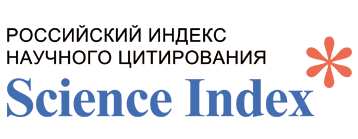INTERLINGUAL EQUIVALENCE OF PHRASEOLOGICAL UNITS
Аннотация
The article deals with a comparative analysis of emotive phraseological units that express fear, anger, and grief in the German, Russian, and Kazakh languages. Based on such new theories and approaches as the cognitive theory in phraseology, national-cultural semantics, universal principles in the description of phraseological units, the semantics of emotive phraseological units has been investigated. The issue of interlingual phraseological equivalence is described by the method of phraseological units analysis in multi-structural languages. A comparative study of emotive phraseological units is based on the theory of interlingual phraseological equivalence. Phraseological equivalents have been established, and types of interlingual phraseological equivalence have been outlined in multi-structural languages: interlingual phraseological equivalence with full unambiguous equivalence; interlingual phraseological equivalence with partial equivalence; interlingual phraseological equivalence with zero equivalence.
Ключевые слова:
comparative analysis of emotive phraseological units, interlingual phraseological equivalence, cognitive theory in phraseology, national-cultural semanticsБиблиографические ссылки
Roizenzon, L.I. and Avaliani, Yu.Yu. (1972) Modern aspects of studying phraseology. In: Problems of phraseology and objectives of its study in higher and secondary schools. Vologda: [s.n.].
Reichstein, A.D. (1980) Comparative analysis of German and Russian phraseology. Moscow: Vysshaya shkola.
Gondek, A., Jurasz, A, Staniewski, P. and Szczęk, J. (Hrsg.) (2020) Deutsche Phraseologie und Parömiologie im Kontakt und im Kontrast (I). Hamburg: Verlag Dr. Kovač.
Ramusino, P.C. and Mollica, F. (eds.) (2020) Contrastive Phraseology: Languages and Cultures in Comparison. Cambridge Scholars Publishing.
Sabitova, M.T. (1999) Fundamentals of German and Kazakh comparative phraseology. Almaty: Kazakh Ablai Khan University of International Relations and World Languages.
Isabekov, S.E. (2010) Fundamentals of cognitive linguistics. Astana: Akarman-media.
Zhumanbekova, N.Z. (2014) Cognitive-semantic and national-cultural significance of the internal form of comparative phraseological units (based on the material of the German, Russian and Kazakh languages). Almaty: [s.n.].
Shakirova, K.I. (2001) Sayings in the German and Kazakh languages (structural and semantic analysis). Almaty: [s.n.].
Smagulova, R.K. (2003) Structural and semantic analysis of phraseologisms containing animal names in the German and Kazakh languages. Almaty: [s.n.].
Omarbekova, G.A. (2004) Structural, onomasiological study of phytonyms in the German and Kazakh languages. Abstract of Philology Cand. Diss. Almaty.
Hallsteinsdȯttir, E. and Farǿ, K. (2010) Interlinguale Phraseologie: Theorie, Praxis und Perspektiven. In: Kuiper, K. (ed.) Yearbook of phraseology. Mouton de Gruyter.
Solodub, Yu.P. and Albrecht, F.B. (2002) Modern Russian language. Vocabulary and phraseology of modern Russian literary language. Мoscow: Flinta; Nauka.
Wierzbicka, A. (1999) Emotions across Languages and Cultures: Diversity and Universality. Cambridge: Cambridge University Press.
Опубликован
Как цитировать
Выпуск
Раздел
Лицензия
Copyright (c) 2022 Bulletin of Shokan Ualikhanov Kokshetau University Philological Series

Это произведение доступно по лицензии Creative Commons «Attribution-NonCommercial» («Атрибуция — Некоммерческое использование») 4.0 Всемирная.











